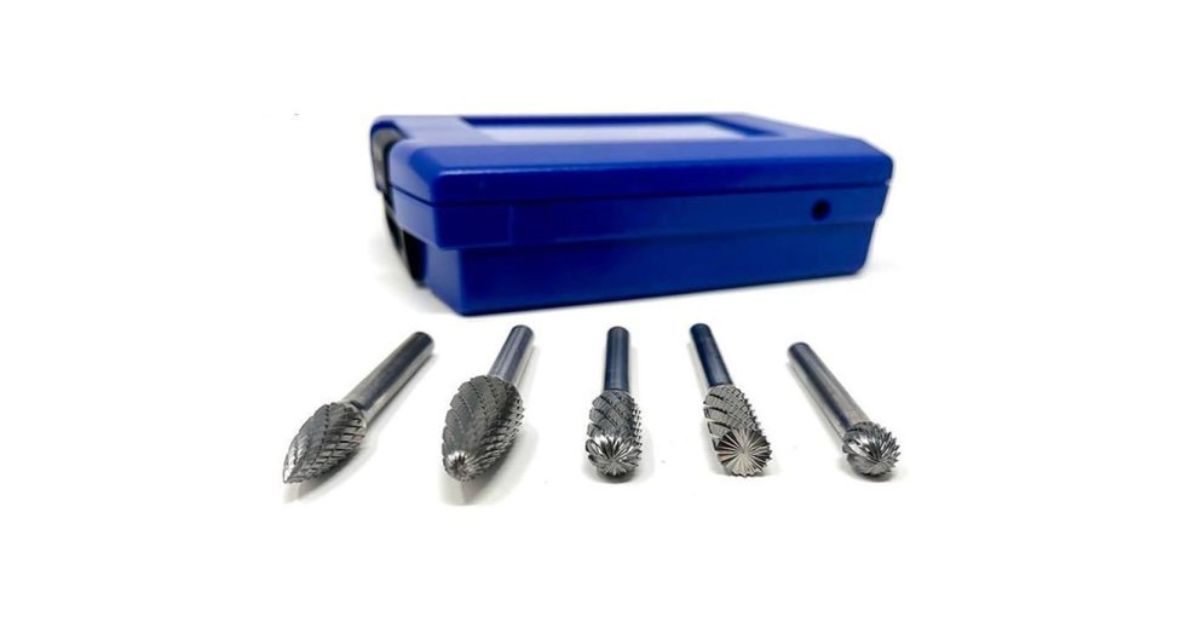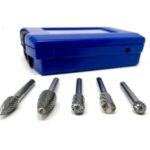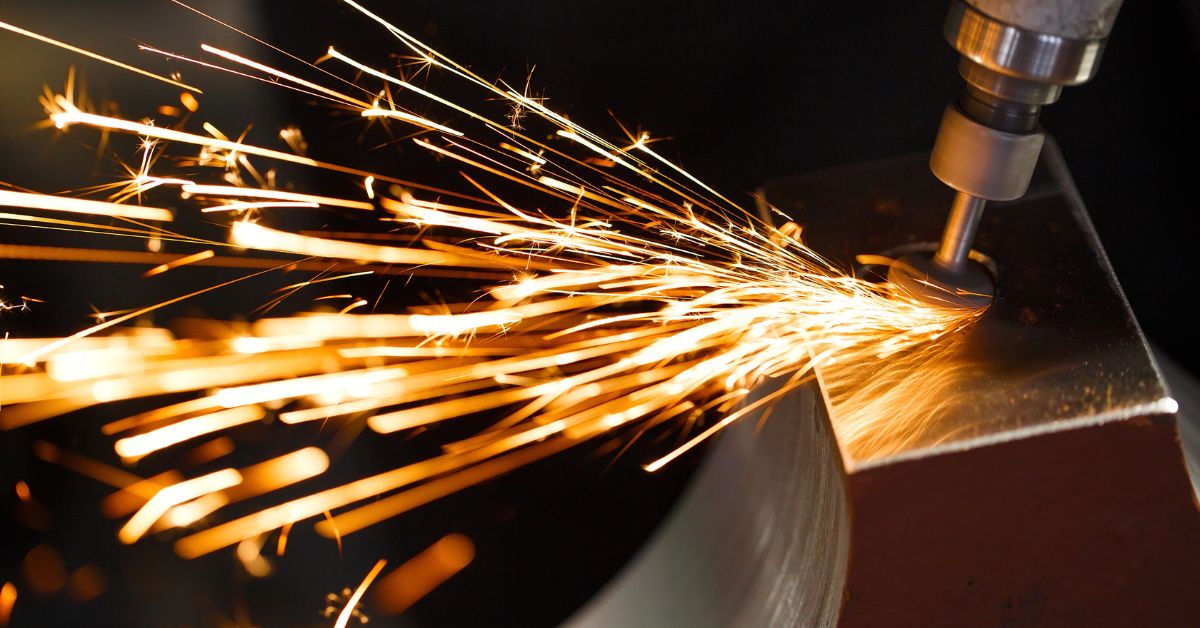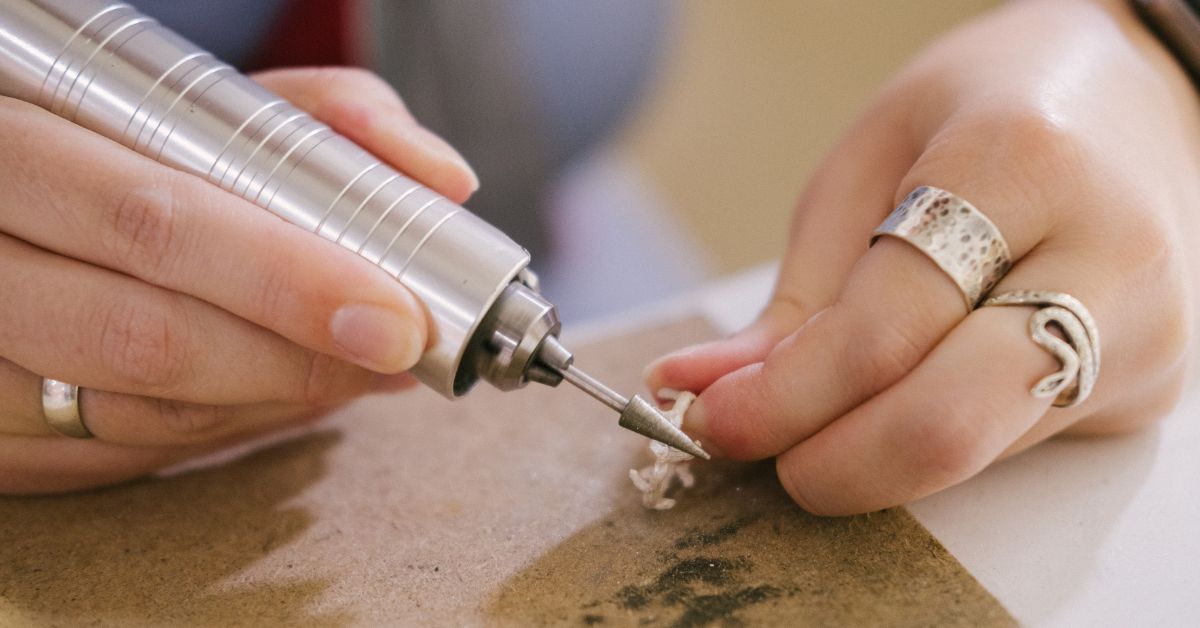Today, rotary burrs stand as one of the most precise tools professionals can use for detailed metalwork. These compact yet powerful tools can handle a variety of metals when users need to perform intricate carving, cutting, grinding, and shaping. In addition to enjoying a broad range of capabilities, professionals can apply the use of rotary burrs in various sectors. Read on to learn about the eight industries that use rotary burrs for detailed metalwork.
Automotive Manufacturing
When consumers buy automobiles, they expect manufacturers to engineer them with a strong focus on quality. This requires workers to maintain strict attention to detail during each step in the automotive manufacturing process. Rotary burrs help them meet those expectations through such tasks as deburring, chamfering, and polishing.
For example, manufacturers use these tools to refine surfaces on engine components and eliminate any irregularities that would impede their function. They can use rotary burrs to accurately carve cylinder ports, ensuring high efficiency and power for engines. By facilitating tasks like these, professionals achieve high durability and performance in parts critical to automobiles.
Aerospace
Another industry that uses rotary burrs for detailed metalwork is the aerospace sector. Aerospace engineers also regularly use these tools to produce components that meet precise standards. For example, engineers can use rotary burrs on turbine blades to remove excess material left after casting.
This process ensures the blades can withstand extreme temperatures and high stress. Even the smallest defect could compromise the safety of an aircraft, which is why aerospace engineers rely on the burrs to address finishing needs. These tools also help prepare surfaces for welding by creating smooth edges that enhance structural strength.
Lightweight alloys like titanium and aluminum dominate aerospace manufacturing, and rotary burrs can handle these materials effectively. From drilling intricate holes in airplane wings to smoothing landing gear shafts, their utility underscores their importance across the industry.
Metal Fabrication
Although the metal fabrication sector has evolved over the years, one thing remains constant: the customer’s need for accuracy in craftsmanship. This is one area where rotary burrs can help professionals excel. Whether they are working on structural components or decorative metalwork, manufacturers depend on these tools to produce clean cuts and polished surfaces.
Rotary burrs can efficiently cut through layers of metal, creating clean and uniform edges ideal for welding or assembly. Tasks such as beveling sharp corners or grooving complex patterns can be more straightforward with these tools. Welders also use rotary burrs for post-weld finishing, removing slag or smoothing seams to enhance both function and appearance.
These tools serve at every phase of fabrication. Professionals turn to rotary burrs during everything, from the initial design stage, where custom cuts define the workpiece, to the post-production phase, where they must make touch-ups. Their ability to shape metals without distorting the material ensures extraordinary results for components and artful creations alike.
Tool Manufacturing
The process of manufacturing tools requires great attention to detail because these products directly impact the quality of larger projects. Rotary burrs play a prominent role in creating sculpted surfaces or refining intricate tool edges, ensuring high operational functionality for their users.
For example, professionals can use rotary burrs to carve serrations and chamfers during the creation of precision cutting tools, enhancing their durability and effectiveness. The outcome benefits fields such as construction, mechanics, and manufacturing, where tools repeatedly endure heavy use.
Medical and Dental Products
Rotary burrs also have applications in the medical world, where manufacturers use them to create products that meet stringent care requirements. For example, manufacturers use rotary burrs to produce surgical instruments that demand burr-free metal surfaces. This precision protects the sensitive tissues of patients during surgeries and improves their medical outcomes.
Dentistry embraces rotary burrs for innovations in dental tools and implants. Drill guides, crowns, and braces rely on rotary burrs to provide fits that are both functional and comfortable for patients. Their use ensures an ideal cut and polish for orthodontic brackets, aiding alignment while delivering consistent pressure throughout treatment.
Medical-grade metals like stainless steel and titanium require exceptional care in handling. Rotary burrs operate without compromising the material’s integrity, ensuring precision-led manufacturing while maintaining hygiene standards. By providing high-quality tools, manufacturers can help increase the odds of success in medical and dental procedures.
Jewelry
The jewelry industry prioritizes intricate designs and fine detailing, and rotary burrs can meet these demands with finesse. Crafters producing artisanal or mass-market jewelry rely on burrs for tasks such as shaping metal alloys or engraving delicate patterns. These tools achieve remarkable precision even for micron-level details.
Rotary burrs can safely handle materials such as gold, silver, and platinum, which require care to retain their luster during processing. Jewelers create spaces to place gemstones with stone-setting burrs, while larger burrs help contour rings and pendants.
For tasks such as resizing or repairing jewelry, rotary burrs swiftly reshape metal without damaging the delicate piece. Rotary burrs help revolutionize jewelry craftsmanship by facilitating precise work, streamlining the creative process, and promoting the enduring quality of the final product.
Construction
The construction industry benefits from rotary burrs during the fabrication of metal components for structural, functional, and decorative use. Construction materials like steel girders undergo post-fabrication finishing to comply with strength and quality parameters. Rotary burrs enhance accuracy during these crucial steps.
These burrs can also help in the process of detailing handrails, gates, and ornamental structures. With the help of these tools, builders can ensure smoother finishes. Similarly, after welding large metallic structures, workers must use burrs to remove residues that may mar appearance and functionality.
The Art Sector
The art world embraces rotary burrs as indispensable tools for creating intricate and breathtaking masterpieces. Artists working with metal often rely on rotary burrs to shape, carve, and refine their creations with precision. Whether an artist is engraving delicate patterns or smoothing the surface of a metal sculpture, these versatile tools allow for unparalleled control and accuracy, enabling the artist to elevate their work to extraordinary levels.
From large outdoor installations to intimate, meticulously designed pieces, rotary burrs help bring each concept to fruition with remarkable detail and finesse. By combining functionality and creativity, rotary burrs have secured their place as essential tools in the art sector, inspiring countless artists to push the boundaries of their craft.
Enhance Your Work With Rotary Burrs From Drill Bit Warehouse
Now you know how rotary burrs can serve as powerhouse tools across multiple industries. From automotive components to fine jewelry, these tools reshape the possibilities of craftsmanship.
Drill Bit Warehouse offers multiple rotary burr products that can help you shape your next project while enhancing its appearance. Review our selection today, which only consists of products that meet our employees’ high standards of quality.






